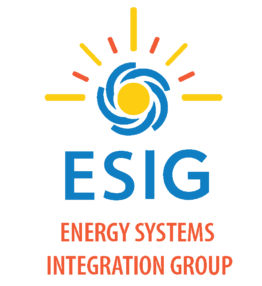Driven by the economics and growth of renewable energy, the global energy industry is expanding its scope beyond today’s electricity system to include interrelationships with natural gas systems, transportation systems, and a wide range of other energy and infrastructure pathways. This expanding perspective around energy, and the growing need for coordination across the ways that we produce, convert, deliver and use energy, is the core of the Energy Systems Integration opportunity.
Energy Systems Integration (ESI) is the process of coordinating the planning and operation of energy systems across multiple pathways and/or geographical scales to deliver reliable, cost effective energy services with minimal impact on the environment.
The Energy Systems Integration Group (ESIG) takes a total system view of the energy systems we use today, focusing on the combined strength of electricity, heat and fuel systems. Tapping into the combined strength of energy systems maximizes the value of every unit of energy being used for power, heat, water, commercial/industrial, residential and transportation purposes. Through collaboration and coordination, ESIG addresses the technical challenges associated with integrating multiple energy systems to enable clean, reliable, and affordable energy systems worldwide. Without the energy systems integration perspective, the full potential of renewable energy will never be reached.
